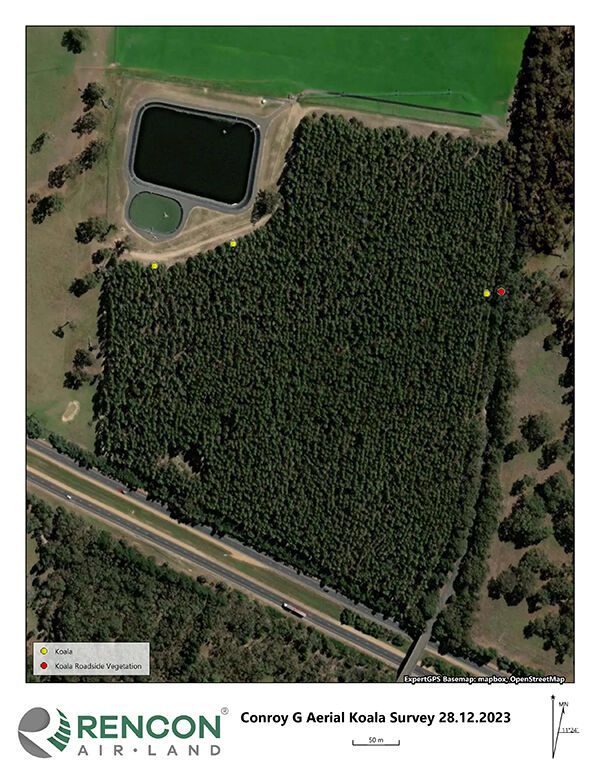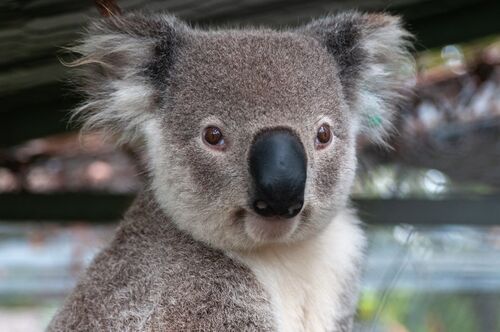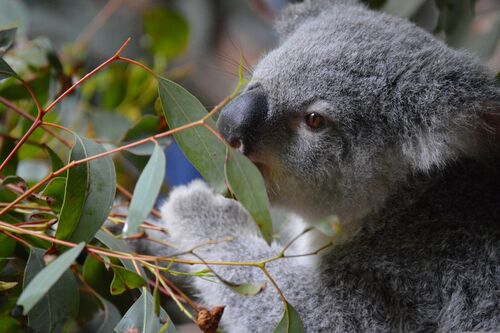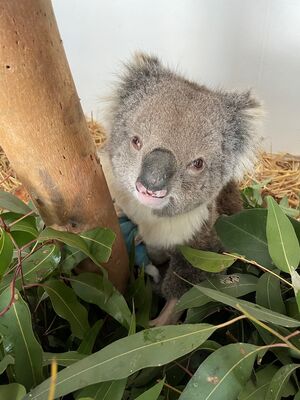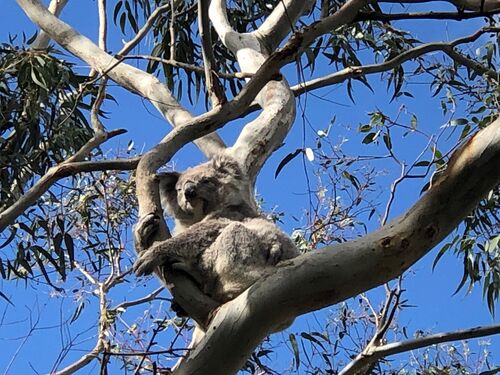Gordon Koalas
#SaveGordonKoalas
June 2021 - 2023
2023 December Update
The Gordon Plantation was finally harvested in December 2023.
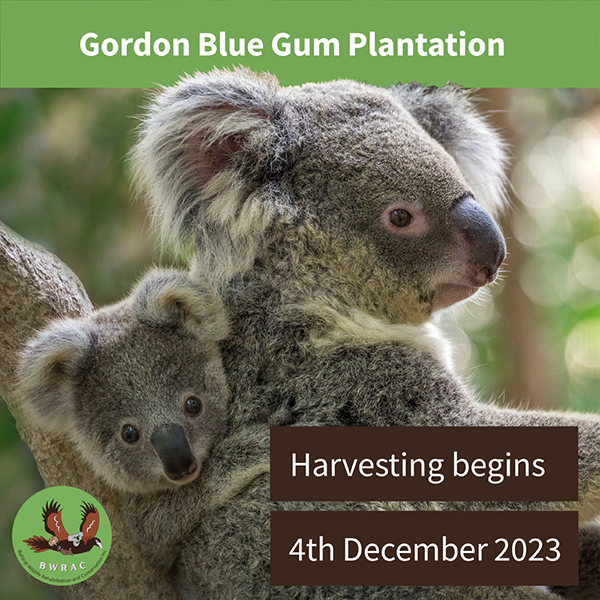
Up to five koalas were known to inhabit the plantation and this caused great concern for their safety. Central Highlands Water (CHW) contacted BWRAC to let us know that the harvesting was scheduled for early December 2023. Despite everyone’s efforts in contacting the relevant authorities to ensure the safety of the koalas, it eventually became clear that the Office of the Conservation Regulator (OCR) (who is tasked with enforcing regulations) had denied an application to relocate the koalas. They replied to BWRAC's letter and also publicly cited that it would be too stressful to translocate the koalas approximately five kilometres to appropriate habitat. Everyone was shocked at their response. We believe their attitude warrants further enquiry as we attempt to understand their position and advocate for higher standards to protect koalas during harvest, so this is not finished yet.
You can read the response from the OCR here.
With only a few short days notice that the harvest was due to commence, CHW provided BWRAC with a Midways contact who Lillian and Melissa liaised with before and during the harvest. At BWRAC’s request, CHW added colored tape to the top row of the barbed wire fence. This acted as a sightline for the kangaroos fleeing the plantation, attempting to help them avoid them being caught in the fencing. Many species were impacted by the harvest, not just koalas.
The Midways Consultant kept BWRAC informed of the outcome of the koala surveys which were conducted on a regular basis during the harvest. It was important to have an open line of communication with her. Thank you Georgie.
VicRoads flatly refused to alter the speed limit during the harvest or immediately following it. Melissa had formed the opinion that they have a draconian attitude towards our wildlife when she wrote to them about decreasing a road speed limit on the Glenelg Highway. Their response was, that wildlife will be killed at 100km or at 80km and they seemed to be unfazed by the human element involved in the scenario. So she was not surprised that they would not budge on the Gordon koala situation, but it was still disappointing.
The Moorabool Shire did put up truck logging signs on Cartons Road at our request. That demonstrated their priority for site safety and their willingness to work with BWRAC.
We have since written to CHW to request that they permanently retain the existing blue gum buffer zone at the site. They have advised BWRAC that they are planning on adding native vegetation to enhance the sites’ biodiversity in consultation with the Wadawurrung Traditional Owners. Given that it takes years for trees to grow, it is essential that CHW retain the existing trees left on site to provide food and shelter for any remaining koalas, and to encourage wildlife that vacated the plantation during harvesting to return.
Thank you to everyone who participated, regardless of which group you belonged to, for helping with the Gordon koalas issue. We know people travelled from Melbourne, did early morning, daytime or night-time shifts at the plantation, so thank you for caring for the koalas and wildlife.
Unfortunately by January 2024 two koalas have been reported dead, hit by vehicles on the Western Highway in Gordon, near the plantation. This is what was predicted would happen.
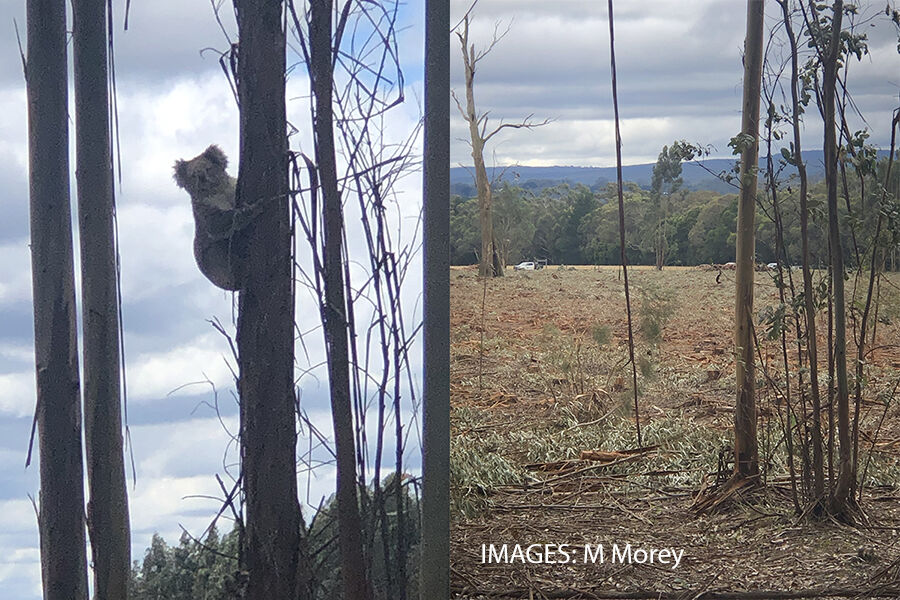
Pre 2023 History
The campaign to save Gordon Koalas came about when a small group of local Gordon wildlife supporters were informed by a neighbouring landowner that a 17-hectare bluegum plantation situated on the corner of Carton’s Road and the Western Freeway, was soon to be clear-felled by the plantation company Midway Pty Ltd.
The land where the plantation sits is owned by Central Highlands Water (CHW). Midway’s 20-year lease has expired, and CHW has instructed Midway to do a “final harvest”. The land is now needed to make room for more sewage ponds.
Wildlife carers fear that clear-felling will force koalas to cross the Western freeway to access more habitat.
A group of at least four koalas are living in a timber plantation set to be harvested.
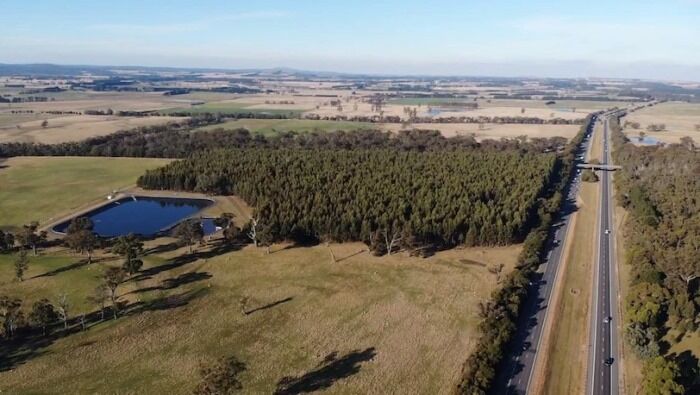
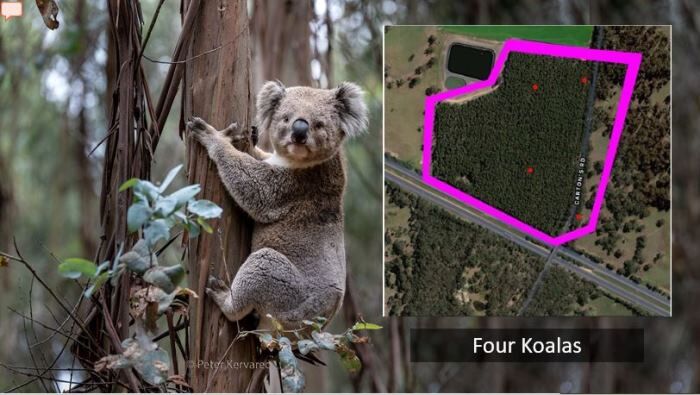
Locals were lucky to have found out about these plans, as there was no community notification at all. Due to it only being 17 hectares of plantation, many locals had assumed that it had been left for wildlife by the landowner, particularly because it was renowned for its colony of koalas who had sheltered there for many years.
Thus started the campaign to stop this clear-felling event and to #SaveGordonKoalas.
As word got out about the plantation clearing, more people grew concerned about the impact the clear-felling would have on wildlife. Many went public with those concerns. Wildlife carers and advocates were particularly concerned because the plantation sits on the edge of a major freeway and is an island with only scattered surrounding habitat. The substantial habitat lay on the other side of a four-lane freeway with a 110km speed limit.
Statistics recorded by local carers showed that car strikes were the most common cause of death for Ballarat Koalas and the most common reason for rescue. There were real fears that Gordon koalas would suffer the same fate once the plantation was cleared.
With growing community pressure, Central Highlands Water set up a public consultation that was conducted largely online over several months. It involved a variety of stakeholders but the two main stakeholders, Midway and DELWP were absent from any discussions. CHW conducted a survey, and it was concluded that there were three koalas living in the plantation and one, just outside the plantation. CHW also decided to engage their own conservation consultant to provide; a balanced solution that met the needs of both wildlife and commercial infrastructure.
After months of consultation, stakeholders met, onsite for the first time to discuss concerns and possible solutions. This meeting included the conservation consultant engaged by CHW.
Not long after, the independent consultant provided his report. There were four different options put forward. Only one of these options supported the koalas in the short term. This option proposed the following:
- To relocate the koalas to suitable habitat 5km north of the plantation, or
- Retain a percentage of the bluegums for the koalas, and enhance existing nearby habitat
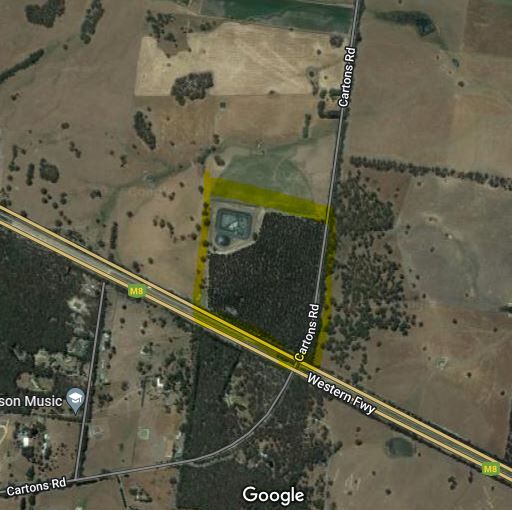
Most of the stakeholders supported this very sensible and balanced solution, and this was also the “preferred option” by the consultant.
Everyone assumed this option would be adopted because it met both commercial interests and the needs of wildlife. However, this did not happen.
After further consultation with both the plantation company and DELWP officers, CHW came back to the community and advised that the Conservation Regulator did not support relocation of the koalas.
This was astounding news for everyone who was involved in the consultation, including the consultant hired to provide the report. The Conservation Regulator, the guardian of our wildlife, the department responsible for their care and conservation, did not support the only option that would safeguard koalas from clear-felling, displacement and likely death from road trauma.
The Minister for Environment and DELWP were asked by many for an explanation for the decision making, however we received templated responses that did not address the issue or account for the decision-making process.
Advocates went to the media and the media went to DELWP – still no answer.
Advocates went to the radio and the radio went to the Ministers office. Then, we got our answer.
It was discovered by the media, that the Conservation Regulator had never received a request from the plantation company or the landowner to relocate the koalas.
This opened a pandora’s box of questions about the plantation industry and how our wildlife is protected. It raised many questions about how these decisions are being made and by whom. There appeared to be no transparency around whether applications for permits were being requested, denied or granted. Ultimately, it revealed to us that the plantation industry is supported by DELWP and largely self-regulated because there is no monitoring of plantation practices by the Conservation Regulator.
We can only assume that it was DELWP or Midway who advised CHW that the Conservation Regulator did not approve the relocation of koalas, and this possibly swayed their decision-making. Be this as it may, proper process had not been followed and decisions were being made for the koalas without oversight from the Conservation Regulator.
The entire point of having a conservation regulator is to make sure our wildlife is protected and any practices that impact the welfare of wildlife should always be assessed on a case-by-case basis. It was clear that this was not happening.
BWRACs past president, did get to meet with the Ministers office to discuss the Gordon situation and was told that the harvest had been delayed and that the plantation company was in the process of applying for a permit to relocate the koalas. This decision is now in the hands of the Conservation Regulator.
Minister Lily D’Ambroiso’s office did promise to keep us informed about progress and the final decision made but this has not yet occurred. We have received no further communication from the Minister’s office and there has been no movement at the plantation.
Image Source:
Koala in tree. Photo source: Peter Kervarec.
Plantation, marked with yellow square. Photo source: Google Maps
Relevant media:
ABC News - Koala safety concerns over plans to clear-fell a Gordon blue gum plantation
Yahoo News - Death sentence' handed to koalas by Victorian authorities
The Courier - Gordon koala habitat under threat of logging
The Courier - Four koalas could be made homeless at blue gum plantation in Gordon
The Guardian - Wildlife activists make 11th hour plea to save koalas before Victorian blue gums logged
The Courier - Blue gum plantation in Gordon postponed indefinitely
DONATE to support sick and injured wildlife here

